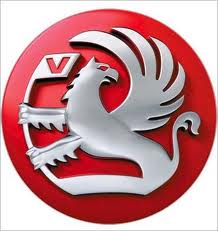Astra J
DTC P0261, P0262, P0264, P0265, P0267, P0268, P0270, or P0271Diagnostic Instructions
DTC DescriptorsDTC P0261 00: Cylinder 1 Injector Control Circuit Low VoltageDTC P0262 00: Cylinder 1 Injector Control Circuit High Voltage DTC P0264 00: Cylinder 2 Injector Control Circuit Low Voltage DTC P0265 00: Cylinder 2 Injector Control Circuit High Voltage DTC P0267 00: Cylinder 3 Injector Control Circuit Low Voltage DTC P0268 00: Cylinder 3 Injector Control Circuit High Voltage DTC P0270 00: Cylinder 4 Injector Control Circuit Low Voltage DTC P0271 00: Cylinder 4 Injector Control Circuit High Voltage Diagnostic Fault Information
Circuit/System DescriptionThe engine control module (ECM) supplies voltage to each fuel injector on the injector positive voltage control circuits. The ECM energizes each fuel injector by grounding the control circuit of that fuel injector. The ECM monitors the status of the injector positive voltage control circuits and the fuel injector control circuits. The injectors are separated into the following two groups:
When a fuel injector circuit condition is detected by the ECM, the affected fuel injectors will be disabled and may disable the affected group of fuel injectors. Conditions for Running the DTC
Conditions for Setting the DTCThe ECM detects that the commanded state of the driver and the actual state of the control circuit do not match. Action Taken When the DTC SetsDTCs P0261, P0262, P0264, P0265, P0267, P0268, P0270 and P0271 are Type A DTCs. Conditions for Clearing the DTCDTCs P0261, P0262, P0264, P0265, P0267, P0268, P0270 and P0271 are Type A DTCs. Reference InformationSchematic ReferenceConnector End View ReferenceElectrical Information ReferenceDTC Type ReferencePowertrain Diagnostic Trouble Code (DTC) Type Definitions Scan Tool ReferenceControl Module References for scan tool information Circuit/System VerificationOperate the vehicle within the Conditions for Running the DTC to verify the DTC does not reset. You may also operate the vehicle within the conditions that are captured in the Freeze Frame/Failure Records Data List. Circuit/System Testing
If less than the specified range, test the low control circuit for an open/high resistance or for a short to ground. If the circuit tests normal, replace the K20 Engine Control Module. If greater than the specified range, test the low control circuit for a short to voltage. If the circuit tests normal, replace the K20 Engine Control Module. If the test lamp does not illuminate or flash, replace the K20 Engine Control Module. If greater than the specified range, test the high control circuit for a short to voltage. If the circuit tests normal, replace the K20 Engine Control Module. If less than the specified range, test the high control circuit for a short to ground. If the circuit tests normal, replace the K20 Engine Control Module. If greater than the specified range, test the high control circuit for an open circuit. If the circuit tests normal, replace the K20 Engine Control Module. Component TestingStatic Test
Note: The DMM and test leads must be calibrated to 0 Ω in order to prevent misdiagnosis. If not within the specified range, replace the fuel injector. If not the specified value, replace the fuel injector. Repair InstructionsPerform the Diagnostic Repair Verification after completing the diagnostic procedure.
|
|||||||||||||||||||||||||||||||||||||||||||||||||||
